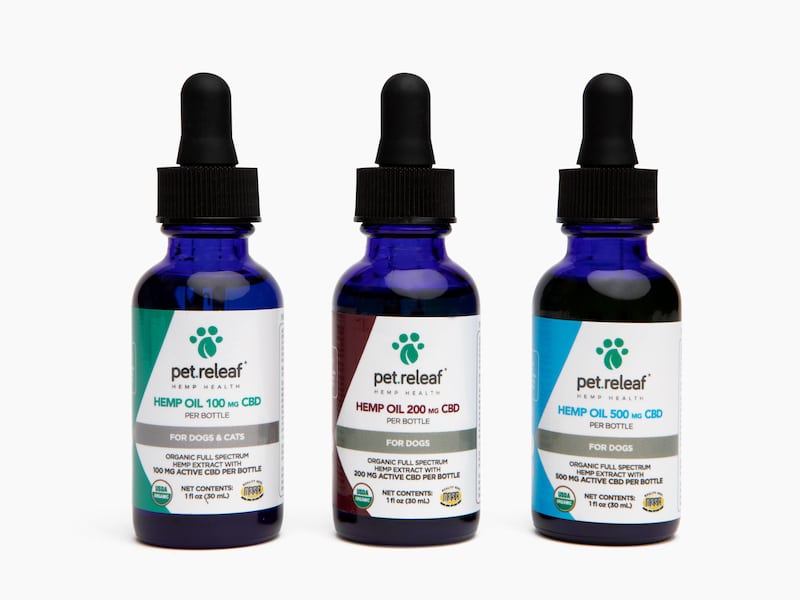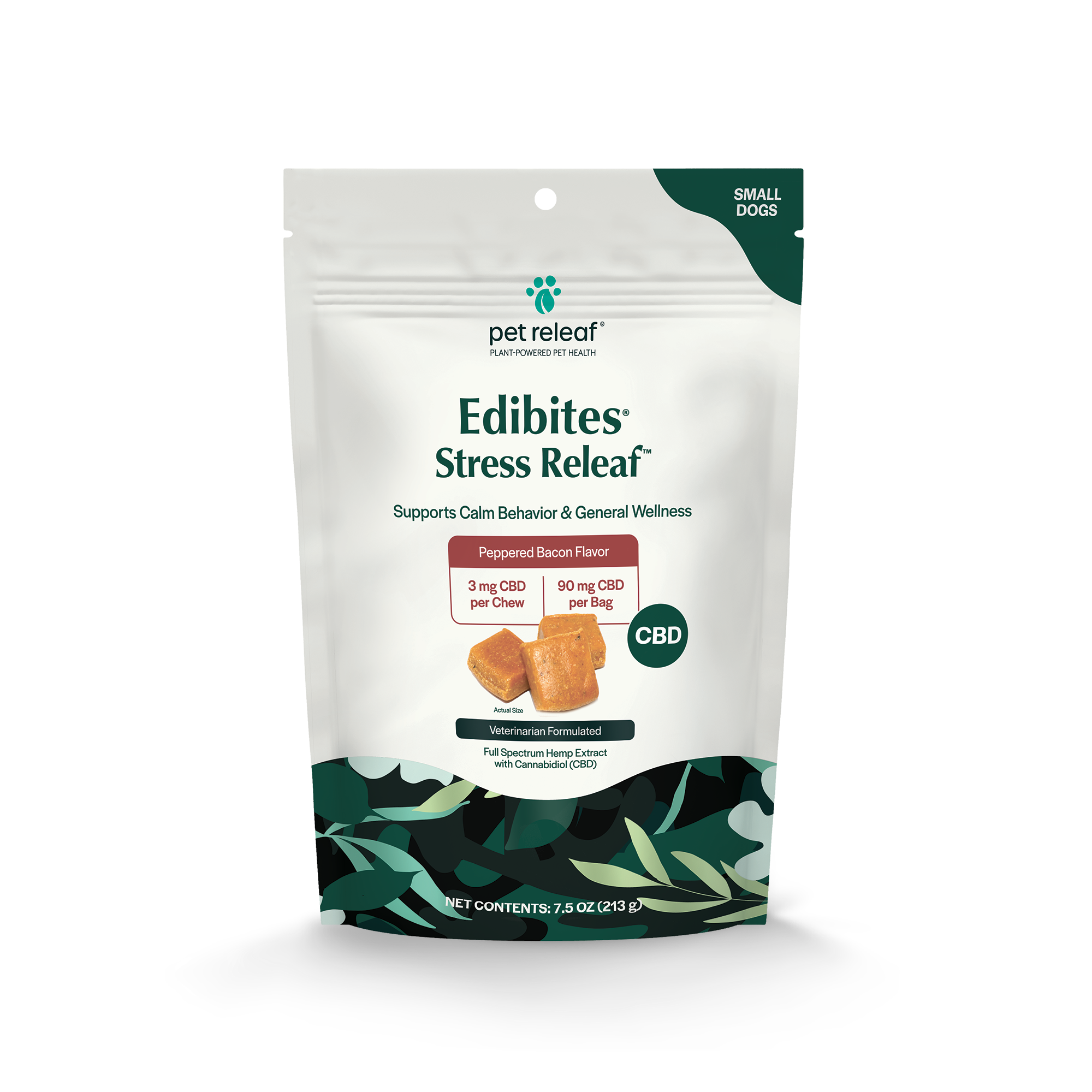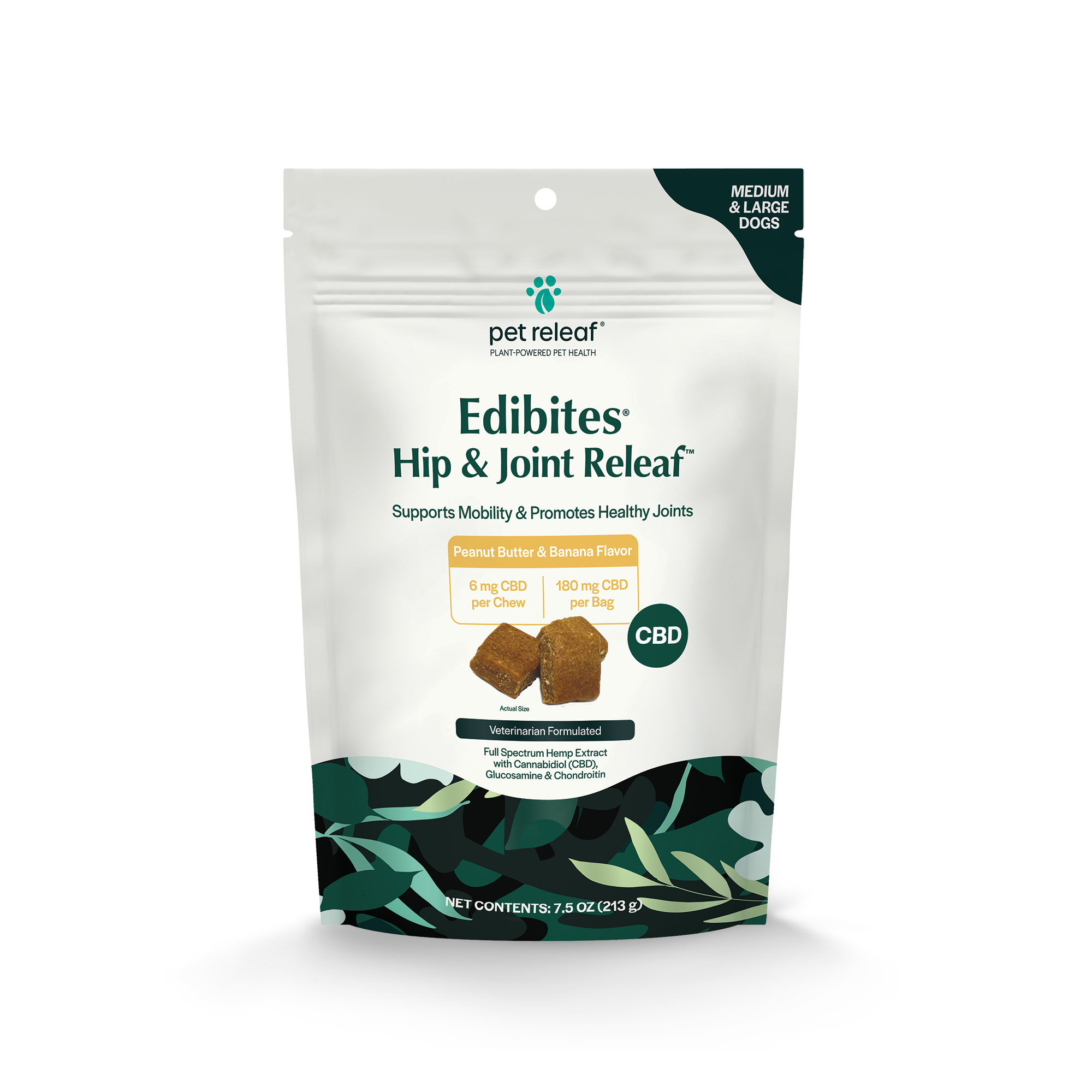
This guide does not constitute medical advice. As with any changes in your pet’s diet, it’s best to consult your veterinarian first, especially if your pet is on medications.
Watching your dog suffer isn’t pleasant. They can’t use words to tell us when they’re hurting, but we can tell by their behaviors that they are enduring discomfort. Your dog is like your family, and you want to help end their discomfort. Thankfully, between a combination of modern veterinary medicine and holistic remedies, it’s possible to help alleviate your dog’s discomfort.
How to Tell if Your Dog is in Pain
While it may be obvious your dog is in pain if they suffered an acute (sudden) injury like a sprain or a broken bone, sometimes it may be less clear if your dog is in more mild discomfort. Here are a few of the ways that dogs express their discomfort to us.
-
Antisocial or aggressive behavior.
-
Changes in eating, drinking, or sleeping habits.
-
Being more vocal.
-
Excessive grooming.
-
Heavy panting or altered breathing.
-
Mobility issues.
-
Signs of agitation.
-
Changes in their body and posture.
-
Shaking or trembling.
How to Ease Discomfort in Dogs
Here are some alternative health remedies that could bring your dog some ease. Remember, your vet will likely have some good advice about holistic remedies like acupuncture and herbs that could help your dog.
1. Acupuncture.
Veterinary acupuncture stimulates the release of the body’s pain-relieving and anti-inflammatory substances. Acupuncture creates a relaxation of the muscles and a generalized discomfort-relieving effect. It improves tissue blood flow, oxygenation, and the removal of bodily wastes and toxins. Veterinary acupuncture doesn’t have any negative side effects. Also, it will not interfere with any medications your dog is currently taking, making this a good treatment for your dog. It’s important to work with a trained, experienced professional. Ask your vet for a referral.
2. Cold Laser Therapy.
This is a noninvasive treatment that uses light to stimulate cell regeneration and increase the circulation of blood. This kind of treatment is often called low-level laser therapy. This is a fairly new treatment that has been used to help dogs with joint issues, tendon, or soft tissue injury, and to promote wound healing. Cold laser therapy affects the surface of the skin. While there are many DIY cold laser kits, the most powerful and effective lasers are only available to vets. Ask your vet if they do cold laser treatments, or for a referral to a vet who does.
3. Joint Supplements.
PetMD recommends the following joint supplements for dogs. While a healthy diet and lifestyle are the best ways to prevent joint discomfort in dogs, sometimes achy joints are inevitable. If that time ever comes, consider trying joint supplements. Glucosamine hydrochloride may help to both maintain normal healthy cartilage and joint function. Omega-3 fatty acids may support a normal inflammatory response and may offer a lot of other health benefits as well. Avocado Soybean Unsaponifiables (ASUs) may help maintain cartilage and connective tissue. This supplement works well with glucosamine and chondroitin sulfate.
4. Massage Therapy.
Depending on the source of your dog’s discomfort, a massage therapist who is trained in canine massage might be able to offer some support. Studies have shown that touching your dog can lower their heart rate and blood pressure. While all dogs can benefit from massage, it is possible that massage therapy can have a therapeutic impact on your dog’s discomfort. It’s important to work with an experienced professional who’s been trained in canine massage. Ask your vet for a referral.
5. Chiropractic Care.
Chiropractic treatments aren’t just for people, now some chiropractors offer spinal adjustments for dogs. If your dog is having uncomfortable back issues, consider taking them to see a doggie chiropractor. Many veterinarians are recommending these kinds of treatments for their furry patients. And, if your dog is having mobility issues, the first stop should be your vet for an assessment. Ask them if they think that a chiropractor is a good next step for your dog’s care.
6. Turmeric.
One of the most popular herbs worldwide for possibly easing discomfort is turmeric root. A widely used staple in Indian cooking, studies have shown there to be many benefits of curcumin, one of the active components of turmeric. Dr. Judy Morgan, DVM and author of “From Needles to Natural: Learning Holistic Pet Healing”, says that turmeric is a powerful antioxidant that can help neutralize free radicals. According to Dr. Morgan, the suggested amount for dogs is “approximately 1/8 – ¼ of a teaspoon per day, for every 10 lb of body weight.” Too much turmeric can act as a blood thinner and upset the stomach, so it’s important to talk to your vet first.
7. Boswellia serrata.
According to PetMD, the resin of the Boswellia serrata tree has been used by humans for health reasons for a long time. Recent studies done in a laboratory have shown it to be helpful for uncomfortable conditions. How does it work? By inhibiting the production of a certain type of leukotriene, which adjusts the body’s immune response to inflammation. There are no known side effects from Boswellia serrata, and dogs can be given human supplements of this herb, as long as there isn’t anything else in them. The amount for a 50-pound dog is 300mg given by mouth twice daily for two weeks, then the dose is halved for maintenance.
8. Cinnamon.
Cinnamon may help health conditions like irritable bowel syndrome, stomach cramps, diarrhea, and inflammation. While there isn’t enough peer-reviewed research on cinnamon to make statements about its ability to help with discomfort, there are a lot of anecdotal accounts, and small human studies have shown cinnamon to have anti-inflammatory properties that might prevent or slow down many health issues. For a 50-pound dog, use ¼ teaspoon of high-quality cinnamon powder added to food twice a day for two weeks to see results. However, if your dog is about to have surgery, make sure to stop using cinnamon two weeks before the procedure, because cinnamon is a blood thinner.
9. Hawthorn
Hawthorn can help dogs who suffer from joint discomfort, according to Dr. Morgan. How does this herb help with joints? Hawthorn can help ease joint discomfort because it supports the body’s collagen, which is an important part of your dog’s joints. Collagen is a building block of connective tissue. Another way Hawthorn can help your dog’s discomfort is by boosting their circulation. This helps the body get rid of toxins that build up in the joints. And, increasing circulation can help ease discomfort in general. As helpful as this herb can be, it’s inappropriate to give to dogs who are taking medicine for heart disease. This herb’s safety for dogs with severe liver, heart, or kidney disease has not been established, so if your dog is on medication, check with your vet before giving them Hawthorn.
CBD and Occasional Discomfort in Dogs
Have you tried CBD for your dog’s occasional discomfort? Pet owners all across America are turning to CBD for a variety of reasons. Over fifty percent of pet owners have purchased either a CBD supplement chew or CBD hemp oil for their pet. If your dog’s joints get stiff after normal daily activity, CBD may be able to ease that stiffness. This is because CBD enhances bone and joint health in dogs and helps support healthy joint fluid viscosity. In addition, CBD may help support the structural integrity of joints and connective tissues by providing building blocks for synovial fluid (joint lubricant), cartilage, and connective tissues. You can use CBD to help proper function of your dog’s back while supporting healthy joints and flexibility.
When it comes to joints, CBD is an optimum blend that helps your dog’s body repair the connective tissue joints are made of. If your dog experiences occasional discomfort after normal daily exercise and activity, CBD may be able to help ease that discomfort. In addition, CBD supports a healthy inflammatory response, which can be helpful with joint issues.
You can feel confident using Pet Releaf CBD for your dog. They have their products tested by a third-party laboratory regularly to ensure potency and quality. Many of their products have either received awards or certifications like USDA Organic and the National Animal Supplement Council Quality (NASC) seal. The NASC seal ensures that Pet Releaf’s CBD pet products are properly labeled, have accurate ingredients listed, and meet all of their stringent supplement requirements.
If your dog loves treats, try one of Pet Releaf’s Edibites, which are a line of CBD and functional herbal supplement chews. They aren’t treats, but they come in great flavors like Peppered Bacon and Sweet Potato Pie. The Sweet Potato Pie supplement chews contain herbs like ginger root that help with digestion. Or you can use their USDA Organic hemp oils. Having trouble deciding? Try Pet Releaf’s helpful product finder to help you choose the right product for your dog.





